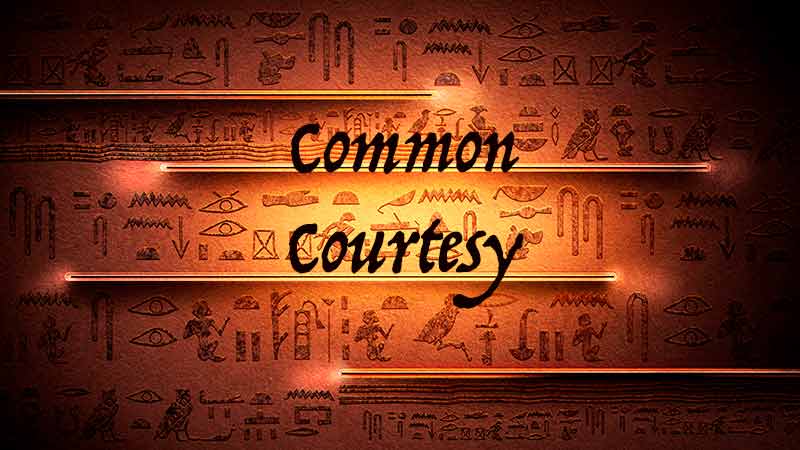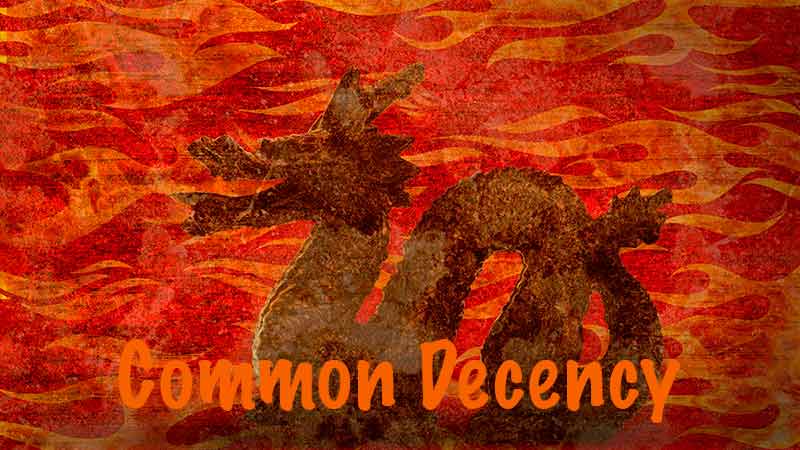Over the years I have learned what is and isn't important in my life. With a global pandemic that hit home personally, as well as some new career moves I did not expect, the early 2k-20‘s were a great reminder of what I should make my priorities. For the best way to be able to focus on those important priorities, I look to Commonsense, Common Courtesy, and Common Decency. The "Common Cubed" always leads me to the inevitability of discovering the root of all things important.
Commonsense
I have been driving for nearly 30 years. I'm far from a great driver. But I can hold my own. I've owned cars ranging from a 1986 Ford Aerostar to a Honda Accord.
For the majority of my time in the driver's seat, intersections have been controlled by stop signs, traffic signals, or yield signs. It was simple. You just did what the sign or signal told you. No guess work. You really only needed to be sure you were clear to go before moving.
This all seemed to work really well until I would come to a four-way stop that was backed up a quarter of a mile in all directions. Even traffic signals at busy intersections would often be on timers instead of having sensors that would manage traffic control automatically. I suppose this led to traffic circles, or roundabouts, to start springing up.
In theory, a traffic circle is a practical way of handling intersections that are frequently used. They are typically designed to slow traffic down to a pace that would allow equitable access to the intersecting streets without requiring everyone to stop. Again, that is the theory.

In practice, however, many people either do not decrease their speed while others come to a complete stop as if it were a four-way stop. This isn't a big deal during low traffic periods. But during a rush hour time frame, this can completely defeat the purpose. One would think Commonsense would be engaged. In my experience, this has not been the case.
When I go through a traffic circle, I know how to pace myself in such a way I would rarely need to stop. I find myself being impatient with those who do not understand how these modern marvels of traffic controlling technology work. I feel it is a Commonsense solution to traffic problems and I really wish those who do not know how to use one would simply go a different route.
Common Courtesy
Throughout the 80's, my family took vacations to the Walt Disney World Resort. In the 90's, my siblings and I had the opportunity to perform in show choirs at the American Pavilion in EPCOT. Although each of us had gone other times with our own families, we would not all go again as a whole until 2011.
There were 15 of us who went on that trip and we stayed in a total of 4 rooms split by each family between my parents, grandparents, and siblings. Disney's Caribbean Beach Resort was chosen for our stay and all of the rooms were one after the other.
Upon arriving at the resort hotel, we had to go through the check-in process. As you can imagine, other guests were also arriving at the time. One such guest had just removed their luggage from their vehicle and proceeded to dump the contents all over the parking lot. I could only imagine the embarrassment they must have felt.

Another guest started to clap and said something to the affect of, "Good job!" in a sarcastic tone. Well, that didn't really help anyone, now did it. As this story is about Common Courtesy, it is fortunate for the guest who's belongings were dispersed everywhere that there was a humble servant nearby.
A third guest quickly sprung to action and started helping to pick up the debris field of clothing. Within a short time, the embarrassed guest was not nearly as such, the clapping guest was now the embarrassed one, and the good Samaritan had shown a great deal of Common Courtesy.
Common Decency
I have had a career that has spanned over two decades. In fact, it is well into the halfway point of the third decade. I have worked for many companies in that time and I've gone from quite the junior software developer all the way up to the Chief Technology Officer.
During this journey, I came across all sorts of personality types. Some that came across as sweet. Some, not so sweet. I do my best to assume noble intent in all interactions I have with other people. However, sometimes, it is obvious there was no nobility intended by the other person.
One of the things I always did my best to do was look directly at the person speaking as to convey I was listening to what they were saying. I find it quite important for the sake of good communication to make eye contact. Sometimes, this even meant turning around in my cubical so I could face the person coming to talk to me.

Unfortunately, this was not always reciprocated. In one case, I had a colleague who not only did not ever look me in the eye, they wouldn't even turn around in their cubical when I came to talk to them.
More often than not, this person would not give me the Common Decency to acknowledge my presence. Even when I was there at their request, they would continue about their business while asking their question or making their statement. I feel as though they were not only disrespecting me, they were also unlikely respecting themselves considering I was there for them in the first place.
All We Need is Love
Now that I have given examples of Commonsense, Common Courtesy, and Common Decency, you might be wondering why the lamentation? Well, I do have a point here. And I am going to try to take my own advice.
All of these commonalities have one thing, well, in common. L. O. V. E. Having love for others can truly make all of these easy to achieve. Putting others before myself will make all the difference.
"L" is for the way I LOOK at everyone
"O" is for I am not the ONLY ONE in the world
"V" is for VALIDATING other's feelings and emotions
"E" is for EVERYONE.

In the case of Commonsense, loving others can lead to understanding how anything works. Doing something incorrectly over and over without trying to seek understanding can lead to selfishness, or even pride, to prevent me from making the commonsense decisions in life.
For Common Courtesy, putting myself in the other person's shoes, as it were, can really open my mind to doing the right thing. Instead of clapping and saying, "Good job!", why don't I try having compassion and lending a helping hand in love.
Finally, Common Decency is one of the easiest ways to learn how to love. When I give someone my full and undivided attention, it will go a long way in terms of not only making the other person feel important, it will start to make me respect myself.